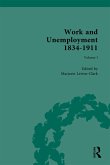'Karl Popper was a philosopher of uncommon originality, clarity and depth, and his range was exceptional.' - The Times
'One of the most influential thinkers of the 20th century.' - The Daily Telegraph
'Popper's work is of far greater than mere academic value; it has an immediate and manifest bearing on the political decisions everyone has to make.' - The Listener
'This is one of the three or four most important books of the methodology of the social sciences to appear since the war.' - New Statesman
'This is the theoretical companion to the better-known Open Society and Its Enemies. It puts paid to all attempts at futurology by pointing out that the future depends on new knowledge which by definition we do not have today.' - Samuel Brittan, The Week
'One of the most influential thinkers of the 20th century.' - The Daily Telegraph
'Popper's work is of far greater than mere academic value; it has an immediate and manifest bearing on the political decisions everyone has to make.' - The Listener
'This is one of the three or four most important books of the methodology of the social sciences to appear since the war.' - New Statesman
'This is the theoretical companion to the better-known Open Society and Its Enemies. It puts paid to all attempts at futurology by pointing out that the future depends on new knowledge which by definition we do not have today.' - Samuel Brittan, The Week
'Karl Popper was a philosopher of uncommon originality, clarity and depth, and his range was exceptional.' - The Times
'One of the most influential thinkers of the 20th century.' - The Daily Telegraph
'Popper's work is of far greater than mere academic value; it has an immediate and manifest bearing on the political decisions everyone has to make.' - The Listener
'This is one of the three or four most important books of the methodology of the social sciences to appear since the war.' - New Statesman
'This is the theoretical companion to the better-known Open Society and Its Enemies. It puts paid to all attempts at futurology by pointing out that the future depends on new knowledge which by definition we do not have today.' - Samuel Brittan, The Week
'One of the most influential thinkers of the 20th century.' - The Daily Telegraph
'Popper's work is of far greater than mere academic value; it has an immediate and manifest bearing on the political decisions everyone has to make.' - The Listener
'This is one of the three or four most important books of the methodology of the social sciences to appear since the war.' - New Statesman
'This is the theoretical companion to the better-known Open Society and Its Enemies. It puts paid to all attempts at futurology by pointing out that the future depends on new knowledge which by definition we do not have today.' - Samuel Brittan, The Week








